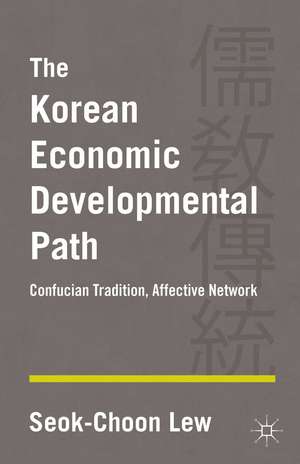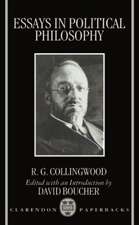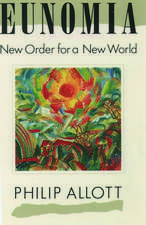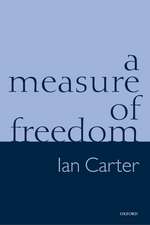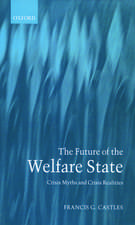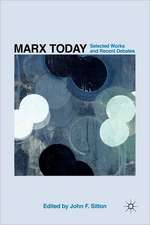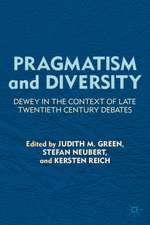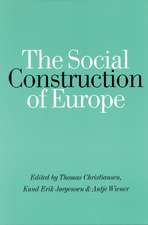The Korean Economic Developmental Path: Confucian Tradition, Affective Network
Autor S. Lewen Limba Engleză Hardback – 16 dec 2013
| Toate formatele și edițiile | Preț | Express |
|---|---|---|
| Paperback (1) | 296.91 lei 3-5 săpt. | |
| Palgrave Macmillan US – 16 dec 2013 | 296.91 lei 3-5 săpt. | |
| Hardback (1) | 303.28 lei 3-5 săpt. | |
| Palgrave Macmillan US – 16 dec 2013 | 303.28 lei 3-5 săpt. |
Preț: 303.28 lei
Nou
Puncte Express: 455
Preț estimativ în valută:
58.03€ • 60.87$ • 48.31£
58.03€ • 60.87$ • 48.31£
Carte disponibilă
Livrare economică 11-25 martie
Preluare comenzi: 021 569.72.76
Specificații
ISBN-13: 9781137359728
ISBN-10: 1137359722
Pagini: 211
Ilustrații: XXIII, 211 p.
Dimensiuni: 140 x 216 x 23 mm
Greutate: 0.41 kg
Ediția:2013
Editura: Palgrave Macmillan US
Colecția Palgrave Macmillan
Locul publicării:New York, United States
ISBN-10: 1137359722
Pagini: 211
Ilustrații: XXIII, 211 p.
Dimensiuni: 140 x 216 x 23 mm
Greutate: 0.41 kg
Ediția:2013
Editura: Palgrave Macmillan US
Colecția Palgrave Macmillan
Locul publicării:New York, United States
Cuprins
Contents Introduction 1. Missing Links in Understanding the Korean Developmental Model PART I: THE CULTURAL DIMENSION: CONFUCIAN TRADITION 2. Confucian Ethics and the Spirit of Capitalism in Korea: The Significance of Filial Piety PART II: THE SOCIAL DIMENSION: AFFECTIVE NETWORKS 3. Affective Networks, Social Capital, and Modernity in Korea 4. Historical Development of Affective Networks in Korea: The Non-governmental Sector and Confucian Tradition PART III: THE POLITICAL DIMENSION: STATE-SOCIETY RELATIONS 5. Confucian Capitalism of Park Chung Hee: Possibilities and Limits 6. Generalized Reciprocity between Strong State and Strong Society: Park Chung Hee and the Korean Developmental Path 7. Did the 1997 Financial Crisis Transform the S. Korean Developmental State? Focused on the Public Fund Conclusion 8. Moral Economy References in English Language References in Korean Language Index
Recenzii
"This is a provocative addition to the literature, by a sociologist, who finds a big gap in existing models of economic development. Taking a fresh look at the concept of social capital, Lew supplements the dichotomy of state-civil society with that of strong state-strong society, based on affective networks, including blood relations, school ties, and localism. He points to 'disciplinary ethos' as a means for keeping the state from being captured by special interests. Concentrating on the example of Korea and on its Confucian traditions, Lew puts culture at center stage in presenting a novel take on how the social sciences should interpret the phenomenal record of East Asian development, arguing that globalization is not incompatible with a strong state and a society still steeped in bonds many thought were unsuitable to our era." - Gilbert Rozman, Emeritus Musgrave Professor of Sociology, Princeton University, USA, and Editor-in-chief, The Asan Forum
"This project will regenerate much interest among students of East Asian patterns of development at large...A proper understanding of the yongo kwan'gye is a key to understanding not only contemporary Korean society, but also its people and the foundation of their social networking which Lew refers to as 'affective networks.' This is a fine contribution to studies of Confucian capitalism and in particular, strong state-strong society relations, in the context of Korea." - Hyung-A Kim, Associate Professor, Australian National University
"The book's culture-oriented narrative is fascinating, alluring, and even intuitive. It takes us back to those questions of economic development about which the Nobel laureate Robert Lucas famously stated, 'Once one starts to think about them, it is hard to think about anything else.' Strikingly, in that same quote, Lucas asks, 'If not [economic policies], what is it about the "nature of India" that makes it so [stagnant]?' Indeed, why Korea and not India? The book shows us where the answer may lie: each country's unique cultural and historical context from which they must 'find their own recipes' (p. 181) for successful development.
Regarding readership, [...] budding students of modern Korea [...] would likely find this book highly readable and insightful. [...] This book should also be instructive for those economists and political economists exploring new avenues of research, such as culture, in economic growth and development." Taejoon Han, The Journal of Asian Studies
"This project will regenerate much interest among students of East Asian patterns of development at large...A proper understanding of the yongo kwan'gye is a key to understanding not only contemporary Korean society, but also its people and the foundation of their social networking which Lew refers to as 'affective networks.' This is a fine contribution to studies of Confucian capitalism and in particular, strong state-strong society relations, in the context of Korea." - Hyung-A Kim, Associate Professor, Australian National University
"The book's culture-oriented narrative is fascinating, alluring, and even intuitive. It takes us back to those questions of economic development about which the Nobel laureate Robert Lucas famously stated, 'Once one starts to think about them, it is hard to think about anything else.' Strikingly, in that same quote, Lucas asks, 'If not [economic policies], what is it about the "nature of India" that makes it so [stagnant]?' Indeed, why Korea and not India? The book shows us where the answer may lie: each country's unique cultural and historical context from which they must 'find their own recipes' (p. 181) for successful development.
Regarding readership, [...] budding students of modern Korea [...] would likely find this book highly readable and insightful. [...] This book should also be instructive for those economists and political economists exploring new avenues of research, such as culture, in economic growth and development." Taejoon Han, The Journal of Asian Studies
Notă biografică
Seok-Choon Lew is a Professor of Sociology/Area Studies and the Director of Syngman Rhee Institute at Yonsei University, Seoul, Korea.
